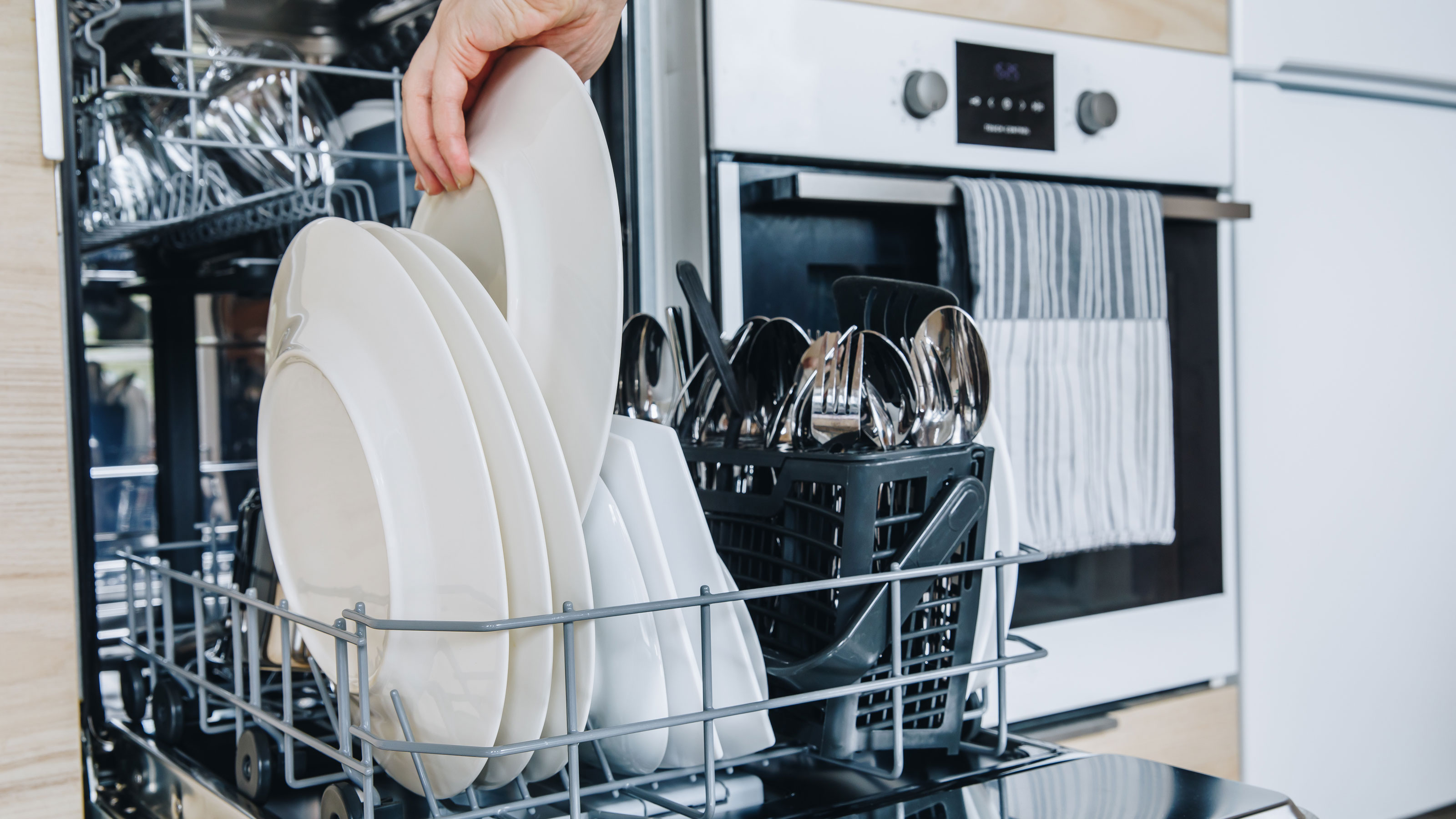

Dishwasher not cleaning properly? Plates and pans coming out of the machine stained or gritty?
When a dishwasher isn't cleaning like it should any more, it wastes your time and effort in putting dishes back in for another cycle, or because you give up and resort to washing them by hand.
But there are reasons for even the best dishwashers to not clean properly and often the issues are ones you can solve yourself rather than having to call someone in or resort to buying a new appliance.
We’ve got the solutions to the common causes of a dishwasher not cleaning properly – as recommended by the experts.
Dishwasher not cleaning? Here’s why, and what to do
There are a number of reasons for a dishwasher not cleaning well. The good news is that often you can fix the issue yourself when the appliance is not doing its job. Sometimes, the problem may be a lack of routine maintenance, but there are other things that can go wrong.
These are the potential problems, and how to solve them.
1. Dirty dishwasher
Why do dishwashers not clean anymore? It may be that you’ve been neglecting to clean the appliance itself. Knowing how to clean a dishwasher correctly and doing so regularly is important as food debris, grease, and other deposits can all accumulate. If it’s not getting the dishes pristine, clean the interior first, along with the filter at the bottom of the machine.
Resolve, too, to clean dishes before you put them in there in the future. ‘Food buildup is one of the biggest issues facing dishwashers,’ says Ryan Shultz, vice president of products and solutions at Cinch Home Services.
‘Some people mistakenly assume that because the dishwasher will wash their dishes for them, that also means it can manage bits of food stuck to plates, bowls and cutlery. Unfortunately, bits of food will just end up sitting on top of the filter.
‘The best way to avoid this is to make sure your dishes have been thoroughly rinsed before placing them in the dishwasher. Rinse off any bits of food you see, regardless of how small they are.’
2. Blocked spray arm
When a dishwasher not cleaning is causing you extra work, a blocked spray arm could be the culprit.
‘The spray arm is usually located below or above the dishwasher racks, and its job is to distribute water that helps wash the dishes,’ explains Navas Magne, at Appliances For Life. ‘The tiny holes in the spray arms can get dirty, thus reducing water pressure, which will, in turn, affect the efficiency of the dishwasher.
‘You need to clean the spray arm regularly to avoid being in a situation like this one. However, if it ever happens, you should just take the spray arm out and clean it properly using a soft brush and dish soap.’
3. Detergent not working
Why would dishwasher detergent be failing to get the dishes clean? Could be it’s the water in your area.
‘If you have a hard water supply at home, your dishwasher may not be able to function optimally,’ explains appliance service technician Haresh Sharma of Everything Better. ‘Just like how soap doesn’t lather properly in hard water, the dishwasher cleaning agents, too, have a tough time working effectively in hard water.
‘The salt you add can counteract water hardness to an extent. But, if the water TDS exceeds 500ppm, most dishwashers won’t clean optimally. Dishwasher tablets provide better results in such cases. Or you may have to use salt, rinse aid and dishwasher tablets together for satisfactory cleaning.’
4. Soap dispenser jammed
Another reason why dishes might be dirty after a cleaning cycle could be that the soap dispenser isn’t functioning.
‘Perhaps the soap dispenser door has become jammed – calling for a good clean with hot water and vinegar,’ suggests Lee Devlin, director at Homecure Plumbers.
Bear in mind, though, that if this doesn’t fix the problem, you’ll need the services of a professional.
5. Water temperature and pressure not right
Maybe you were wondering if the problem is the temperature of the water in the dishwasher? In fact, dishwashers do heat the water to the required temperature for a cleaning cycle.
However, experts advise that you run hot water from the faucet into the sink before turning the machine on in order to bring hotter water to the machine.
The water pressure in your home might also be an issue for the dishwasher, and this is something which you may have noticed when turning on faucets. If that’s the case, call on a pro to tackle the problem.
6. Faulty inlet valve
When the sound of water going into the dishwasher is accompanied by other noises, then a faulty inlet valve might be creating them. Think your inlet valve might be the cause of dishwashing problems? A fix or replacement is best done by a professional, the experts say.
How do I know if my dishwasher filter is clogged?
Dishwasher not draining? To check if a dishwasher filter might be clogged, take a look at it to see if there’s food debris. If that’s the case, the fix is easy.
‘Remove the bottom rack of the dishwasher and locate the filter on the floor of the appliance – a cylindrical tube that twist-locks into place,’ explains Ron Shimek, president of Mr Appliance, a Neighborly company.
‘Remove the upper, cylindrical filter first by twisting to unlock it. Once unlocked, pull gently to remove the filter. Afterward, simply lift out the lower filter if there is one.
There are a few easy ways to clean a dishwasher filter. ‘Handwash the filter in warm, soapy water and rinse through under running water. Scrub the filter very gently with a sponge or old toothbrush. Once done, use a damp towel to wipe the area clean if necessary. Lastly, put the filter back in place.’
Why is my dishwasher leaving grit on my dishes?
If you find your dishes are gritty, the filter is the prime suspect. ‘You should automatically assume that the filter needs cleaning,’ says Melanie Musson, a home cleaning expert with Quote.com. ‘Of course, there are other possibilities for dishes not getting cleaned, but the most common reason by far is a dirty filter.
‘If you clean your filter and the problem persists, the next place to inspect is the sprayer arms. Perhaps the sprayer is clogged. This problem is especially prevalent in homes with hard water. Remove the sprayer and soak the arm in a basin filled with vinegar. After 15 minutes, use a toothpick to remove any remaining hard water deposits.’
Join our newsletter
Get small space home decor ideas, celeb inspiration, DIY tips and more, straight to your inbox!

Sarah is a freelance journalist and editor writing for websites, national newspapers, and magazines. She’s spent most of her journalistic career specialising in homes – long enough to see fridges become smart, decorating fashions embrace both minimalism and maximalism, and interiors that blur the indoor/outdoor link become a must-have. She loves testing the latest home appliances, revealing the trends in furnishings and fittings for every room, and investigating the benefits, costs and practicalities of home improvement. It's no big surprise that she likes to put what she writes about into practice, and is a serial house revamper. For Realhomes.com, Sarah reviews coffee machines and vacuum cleaners, taking them through their paces at home to give us an honest, real life review and comparison of every model.
-
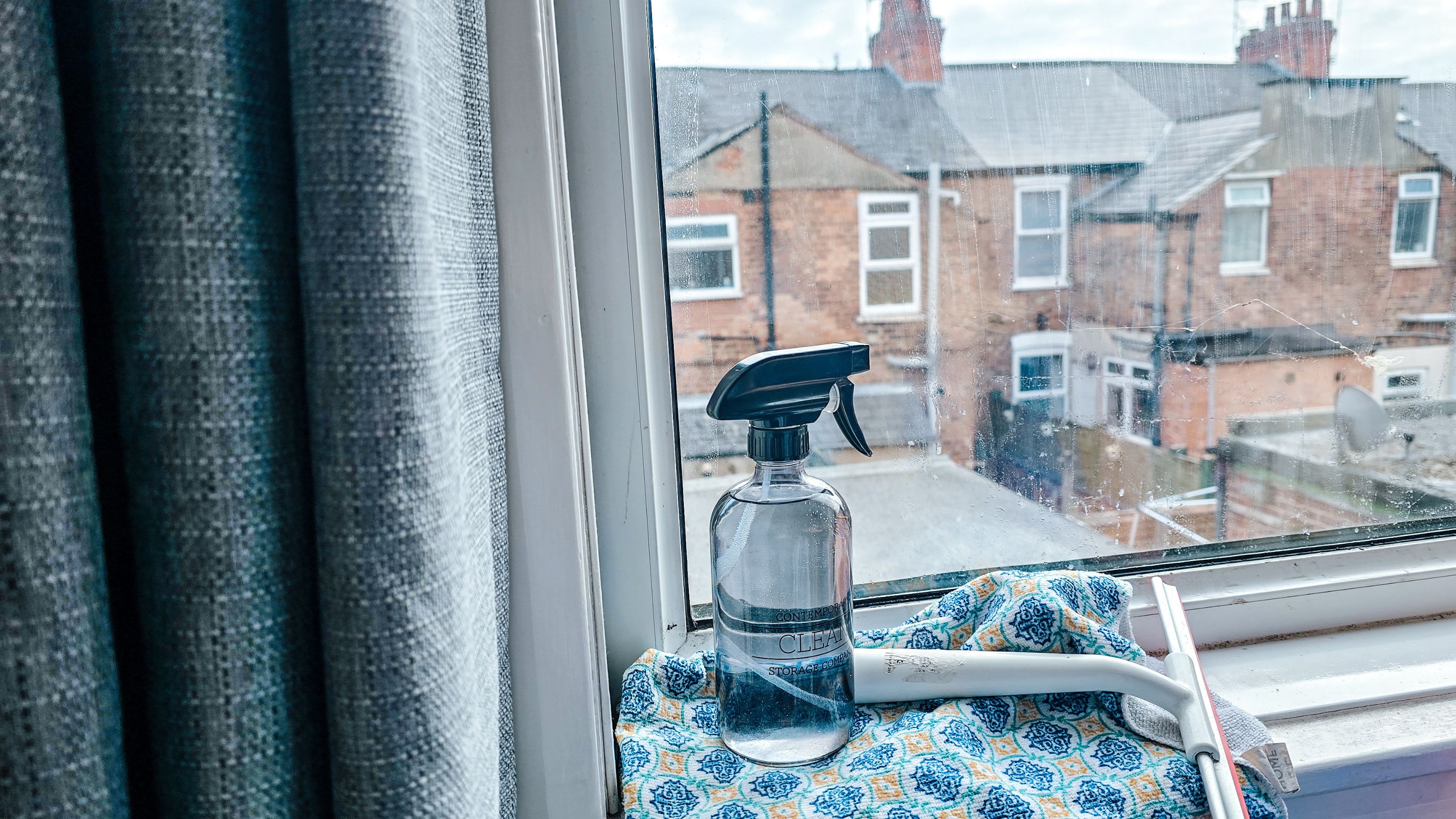 How to clean windows without streaks — 5 easy steps that cleaning pros always follow
How to clean windows without streaks — 5 easy steps that cleaning pros always followThis method on how to clean windows is favored by professional cleaners. We've asked them for the steps you should follow, plus picked cleaning buys
By Eve Smallman
-
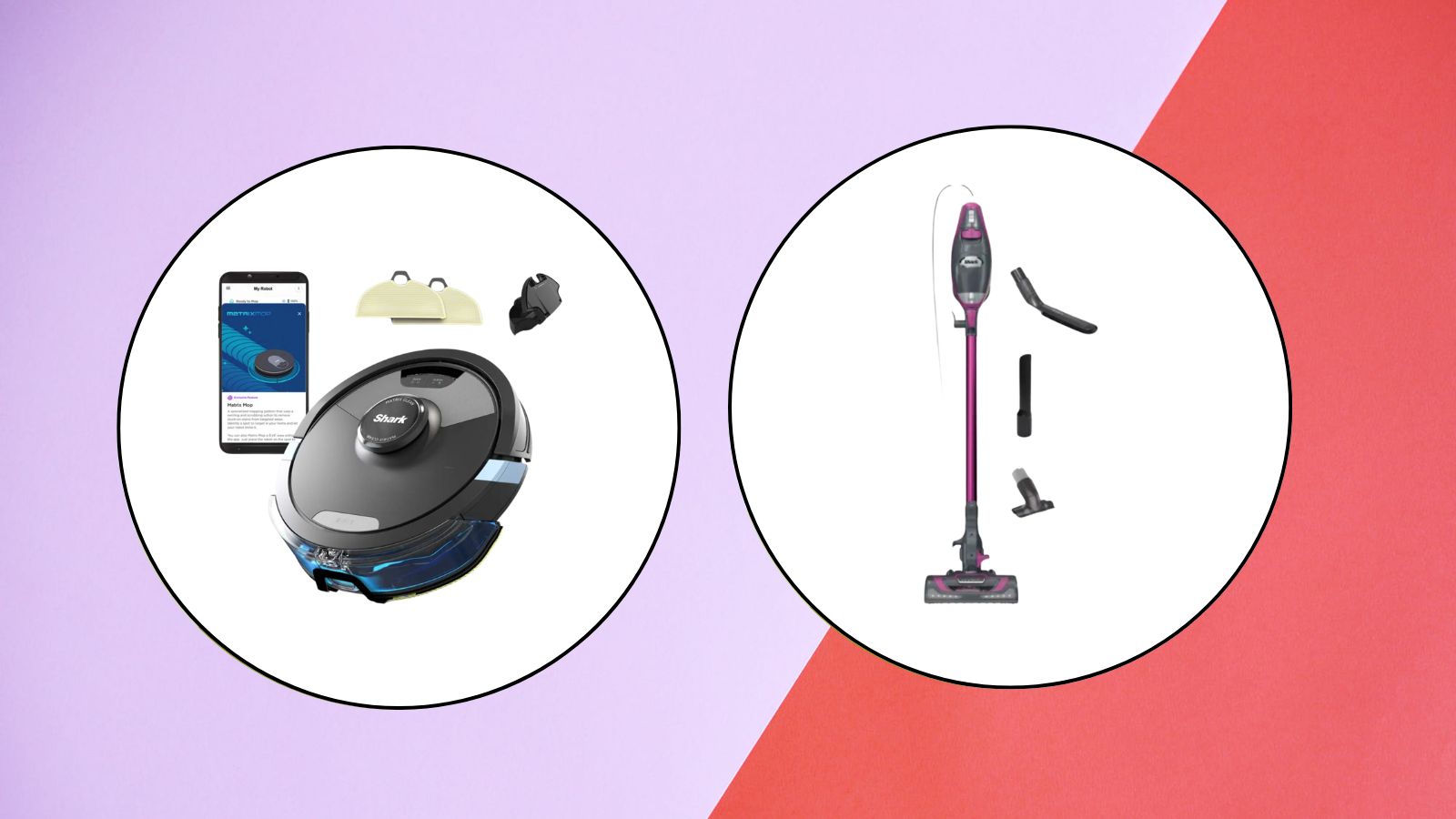 The latest Shark sale deals are perfect for pollen-proofing your home — with up to $150 off our favorite vacuums
The latest Shark sale deals are perfect for pollen-proofing your home — with up to $150 off our favorite vacuumsWe found the latest Shark sale deals on vacuums that are sure to be swooped up, especially as spring blooms trigger pollen allergies and we're in need of extra cleaning
By Danielle Valente
-
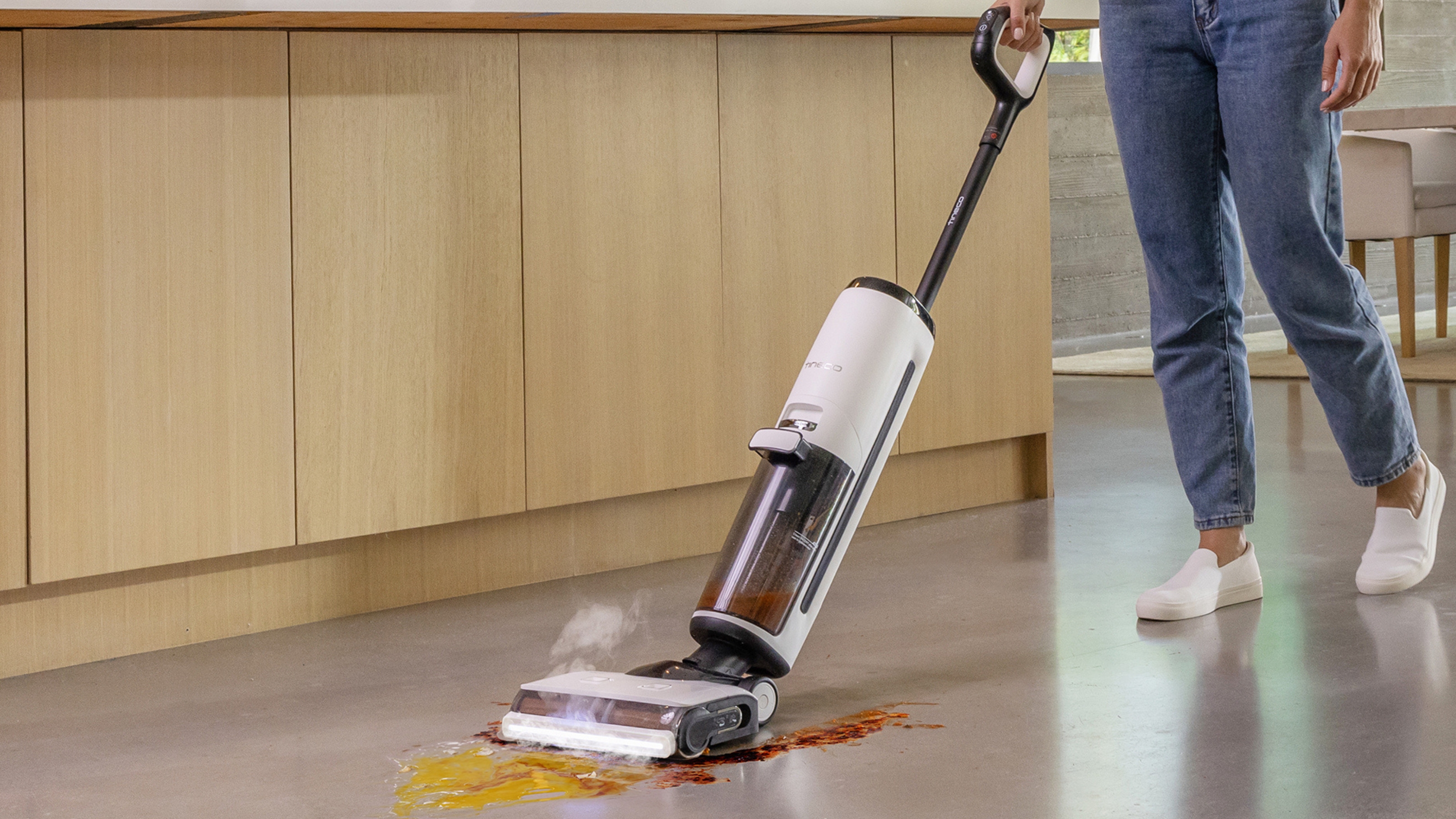
 Tineco Floor One S7 steam wet-dry vacuum review — spotless floors with minimal effort
Tineco Floor One S7 steam wet-dry vacuum review — spotless floors with minimal effortOur contributing editor, Camryn Rabideau, tests the Tineco Floor One S7 steam wet-dry vacuum in her New England homestead property
By Camryn Rabideau
-
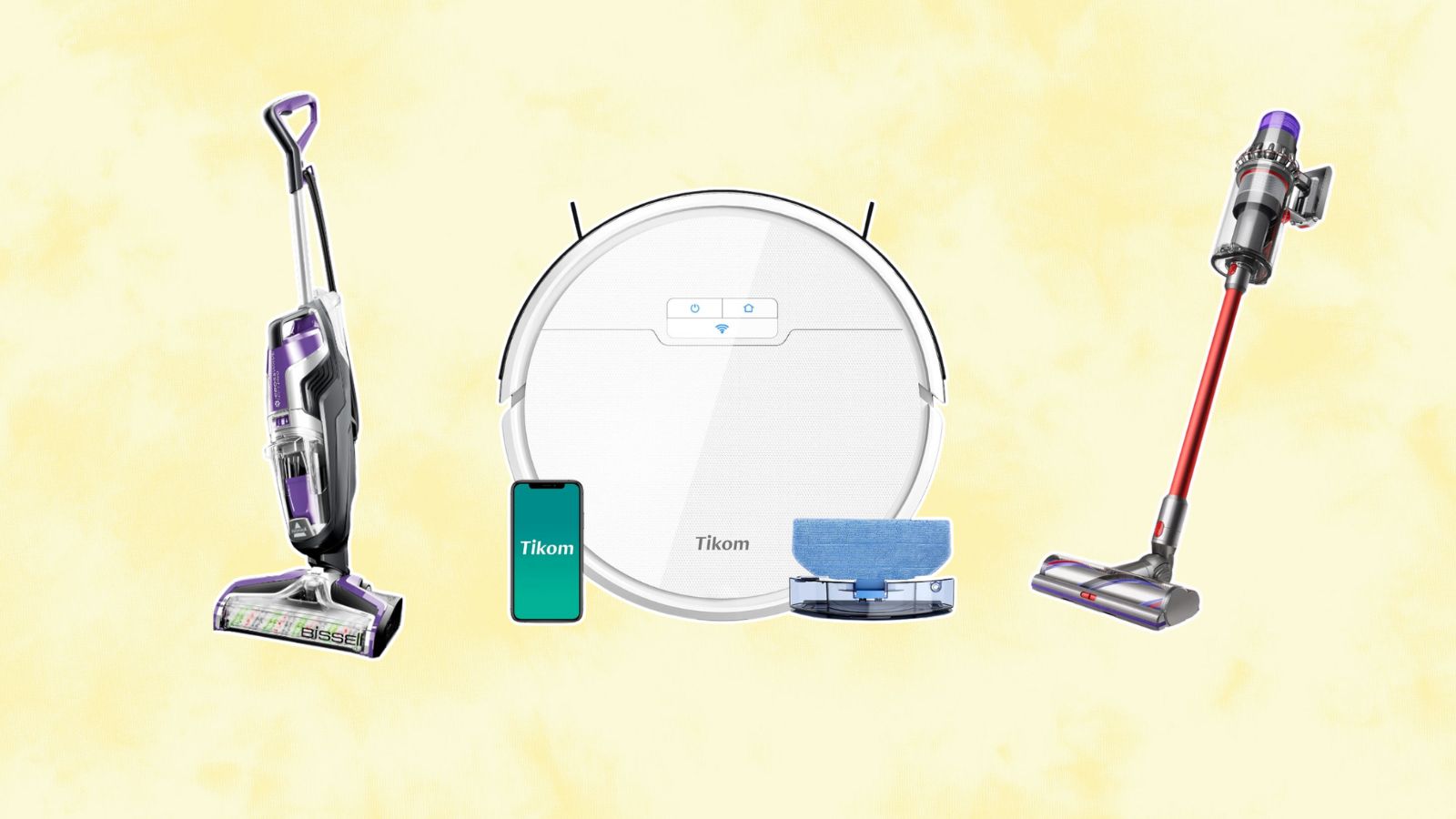 Amazon vacuum cleaners to nab during the retailer's Big Spring Sale — save up to 60% off our go-to small-space finds
Amazon vacuum cleaners to nab during the retailer's Big Spring Sale — save up to 60% off our go-to small-space findsChecking out the savings on Amazon? Vacuum cleaners are a must-buy during their first Big Spring Sale — here are our favorites up to 60% off
By Danielle Valente
-
 The Home Edit Walmart cleaning collection has just debuted with finds from $3
The Home Edit Walmart cleaning collection has just debuted with finds from $3Spring cleaning, anyone? The Home Edit Walmart cleaning collection has hit shelves with picks from $3
By Danielle Valente
-
 How to clean carpet on stairs — 3 simple steps to a spruced up staircase
How to clean carpet on stairs — 3 simple steps to a spruced up staircaseWant to know how to clean carpet on stairs? Our experts explain the simple steps to a sparkling stairway without too much elbow grease
By Andy van Terheyden
-
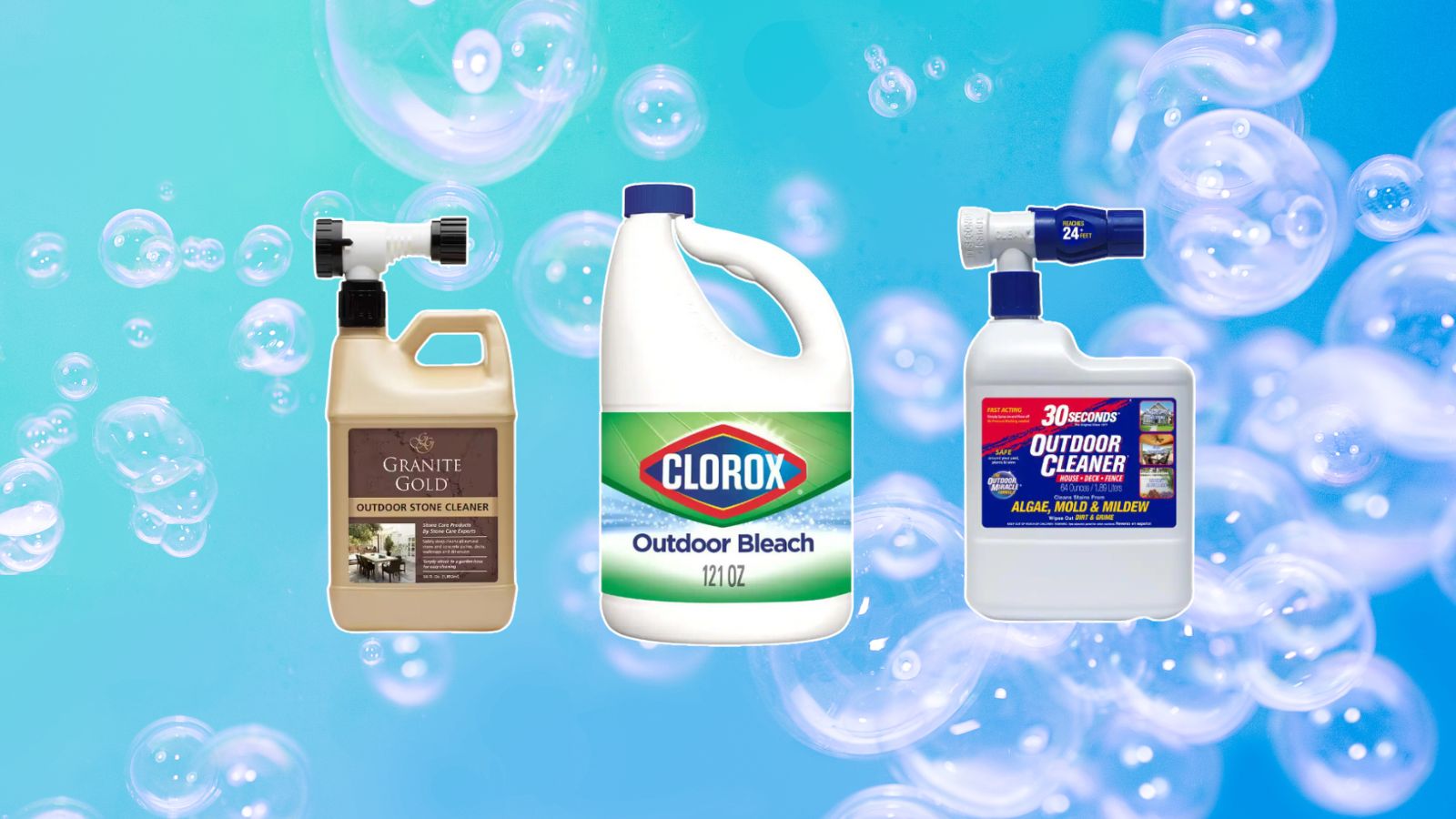 The Home Depot backyard and patio cleaning supplies we're stocking up on before spring
The Home Depot backyard and patio cleaning supplies we're stocking up on before springDon't forget the outdoors when spring cleaning — The Home Depot backyard and patio cleaning buys from $11 will assist with tidying up
By Danielle Valente
-
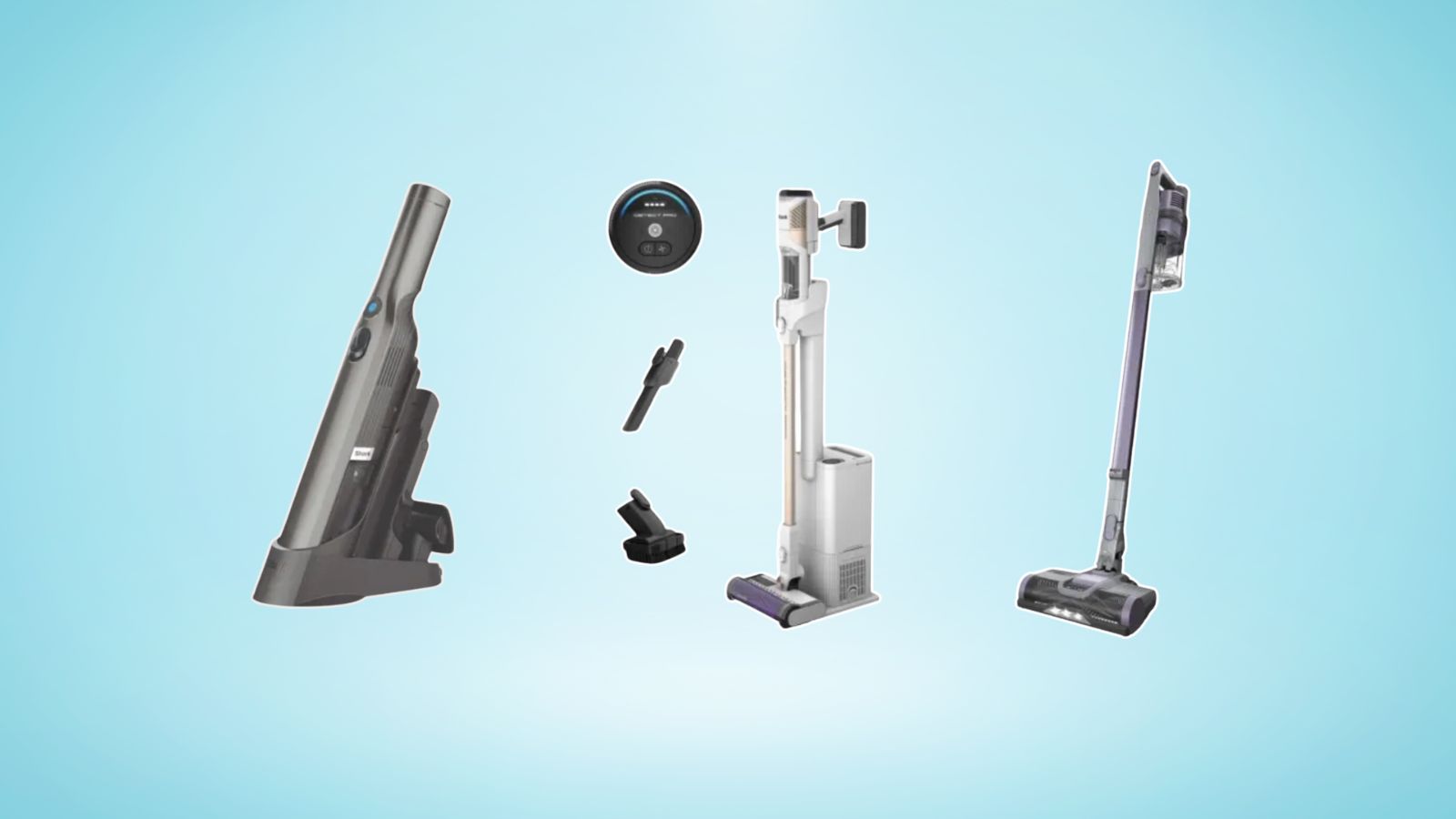 The Shark Detect Pro vacuum and other models are on sale for St Patrick's Day — perfect picks for your spring clean
The Shark Detect Pro vacuum and other models are on sale for St Patrick's Day — perfect picks for your spring cleanWhether you're eyeing the Shark Detect Pro Vacuum or Shark Pet Cordless Stick Vacuum, shop the St. Patty's Day sale for a discount on the best vacuums on shelves
By Danielle Valente